Even after a very high score of Google PageSpeed(97) & Yahoo! YSlow(92) the PHP generated thumbnails don't seem to be coming passively from an old cache: they seem to be generated every time again...and again... freshly baked consuming lots of waisted time.
This question will focus only & specifically on how to solve the CACHE problem of the PHP Code that generates the thumbs:
Just have a look at these tiny puny little thumbnails measuring only 3 ~ 5 kb each!
Waterfall in detail: http://www.webpagetest.org/result/110328_AM_8T00/1/details/
Any & all suggestons are +1 help to me and warmly welcome, for I have grown quite desperate on this issue for the last months. Thanx a Thousand!
Using or not Modrewrite does not influence speed: both are same. I use these rewrite conditions: RewriteCond %{REQUEST_URI} ^/IMG-.*$ & RewriteCond %{REQUEST_FILENAME} !-f
Both the original default URL as well as the beautified rewritten URL produce the same delays!! So let us not point the fault to the lightning fast Apache: its the PHP Cache / headers that are somehow wrongly coded...

Warning by webpagetest.org: Leverage browser caching of static assets: 69/100
FAILED - (No max-age or expires): http://aster.nu/imgcpu?src=aster_bg/124.jpg&w=1400&h=100&c=p
After each refresh, you will see either of these two warnings appear on random at REDbot.org


Relevant Portions of The Code:
// Script is directly called
if(isset($_GET['src']) && (isset($_GET['w']) || isset($_GET['h']) || isset($_GET['m']) || isset($_GET['f']) || isset($_GET['q']))){
$ImageProcessor = new ImageProcessor(true);
$ImageProcessor->Load($_GET['src'], true);
$ImageProcessor->EnableCache("/var/www/vhosts/blabla.org/httpdocs/tmp/", 345600);
$ImageProcessor->Parse($quality);
}
/* Images processing class
* - create image thumbnails on the fly
* - Can be used with direct url imgcpu.php?src=
* - Cache images for efficiency
*/
class ImageProcessor
{
private $_image_path; # Origninal image path
protected $_image_name; # Image name string
private $_image_type; # Image type int
protected $_mime; # Image mime type string
private $_direct_call = false; # Is it a direct url call? boolean
private $_image_resource; # Image resource var Resource
private $_cache_folder; # Cache folder strig
private $_cache_ttl; # Cache time to live int
private $_cache = false; # Cache on boolean
private $_cache_skip = false; # Cache skip var boolean
private function cleanUrl($image){ # Cleanup url
$cimage = str_replace("\\", "/", $image);
return $cimage;
}
/** Get image resource
* @access private, @param string $image, @param string $extension, @return resource */
private function GetImageResource($image, $extension){
switch($extension){
case "jpg":
@ini_set('gd.jpeg_ignore_warning', 1);
$resource = imagecreatefromjpeg($image);
break;
}
return $resource;
}
/* Save image to cache folder
* @access private, @return void */
private function cacheImage($name, $content){
# Write content file
$path = $this->_cache_folder . $name;
$fh = fopen($path, 'w') or die("can't open file");
fwrite($fh, $content);
fclose($fh);
# Delete expired images
foreach (glob($this->_cache_folder . "*") as $filename) {
if(filemtime($filename) < (time() - $this->_cache_ttl)){
unlink( $filename );
}
}
}
/* Get an image from cache
* @access public, @param string $name, @return void */
private function cachedImage($name){
$file = $this->_cache_folder . $name;
$fh = fopen($file, 'r');
$content = fread($fh, filesize($file));
fclose($fh);
return $content;
}
/* Get name of the cache file
* @access private, @return string */
private function generateCacheName(){
$get = implode("-", $_GET);
return md5($this->_resize_mode . $this->_image_path . $this->_old_width . $this->_old_height . $this->_new_width . $this->_new_height . $get) . "." . $this->_extension;
}
/* Check if a cache file is expired
* @access private, @return bool */
private function cacheExpired(){
$path = $this->_cache_folder . $this->generateCacheName();
if(file_exists($path)){
$filetime = filemtime($path);
return $filetime < (time() - $this->_cache_ttl);
}else{
return true;
}
}
/* Lazy load the image resource needed for the caching to work
* @return void */
private function lazyLoad(){
if(empty($this->_image_resource)){
if($this->_cache && !$this->cacheExpired()){
$this->_cache_skip = true;
return;
}
$resource = $this->GetImageResource($this->_image_path, $this->_extension);
$this->_image_resource = $resource;
}
}
/* Constructor
* @access public, @param bool $direct_call, @return void */
public function __construct($direct_call=false){
# Check if GD extension is loaded
if (!extension_loaded('gd') && !extension_loaded('gd2')) {
$this->showError("GD is not loaded");
}
$this->_direct_call = $direct_call;
}
/* Resize
* @param int $width, @param int $height, @param define $mode
* @param bool $auto_orientation houd rekening met orientatie wanneer er een resize gebeurt */
public function Resize($width=100, $height=100, $mode=RESIZE_STRETCH, $auto_orientation=false){
// Validate resize mode
$valid_modes = array("f", "p");
}
// .... omitted .....
// Set news size vars because these are used for the
// cache name generation
// .... omitted .....
$this->_old_width = $width;
$this->_old_height = $height;
// Lazy load for the directurl cache to work
$this->lazyLoad();
if($this->_cache_skip) return true;
// Create canvas for the new image
$new_image = imagecreatetruecolor($width, $height);
imagecopyresampled($new_image, $this->_image_resource, $dst_x, $dst_y, $src_x, $src_y, $dst_w, $dst_h, $src_w, $src_h);
// .... omitted .....
$this->_image_resource = $new_image;
}
/* Create image resource from path or url
* @access public, @param string $location, @param bool $lazy_load, @return */
public function Load($image,$lazy_load=false){
// Cleanup image url
$image = $this->cleanUrl($image);
// Check if it is a valid image
if(isset($mimes[$extension]) && ((!strstr($image, "http://") && file_exists($image)) || strstr($image, "http://")) ){
// Urlencode if http
if(strstr($image, "http://")){
$image = str_replace(array('http%3A%2F%2F', '%2F'), array('http://', '/'), urlencode($image));
}
$image = str_replace("+", "%20", $image);
$this->_extension = $extension;
$this->_mime = $mimes[$extension];
$this->_image_path = $image;
$parts = explode("/", $image);
$this->_image_name = str_replace("." . $this->_extension, "", end($parts));
// Get image size
list($width, $height, $type) = getimagesize($image);
$this->_old_width = $width;
$this->_old_height = $height;
$this->_image_type = $type;
}else{
$this->showError("Wrong image type or file does not exists.");
}
if(!$lazy_load){
$resource = $this->GetImageResource($image, $extension);
$this->_image_resource = $resource;
}
}
/* Save image to computer
* @access public, @param string $destination, @return void */
public function Save($destination, $quality=60){
if($this->_extension == "png" || $this->_extension == "gif"){
imagesavealpha($this->_image_resource, true);
}
switch ($this->_extension) {
case "jpg": imagejpeg($this->_image_resource,$destination, $quality); break;
case "gif": imagegif($this->_image_resource,$destination); break;
default: $this->showError('Failed to save image!'); break;
}
}
/* Print image to screen
* @access public, @return void */
public function Parse($quality=60){
$name = $this->generateCacheName();
$content = "";
if(!$this->_cache || ($this->_cache && $this->cacheExpired())){
ob_start();
header ("Content-type: " . $this->_mime);
if($this->_extension == "png" || $this->_extension == "gif"){
imagesavealpha($this->_image_resource, true);
}
switch ($this->_extension) {
case "jpg": imagejpeg($this->_image_resource, "", $quality); break;
case "gif": imagegif($this->_image_resource); break;
default: $this->showError('Failed to save image!'); break;
}
$content = ob_get_contents();
ob_end_clean();
}else{
if (isset ($_SERVER['HTTP_IF_MODIFIED_SINCE'])) {
if (strtotime ($_SERVER['HTTP_IF_MODIFIED_SINCE']) < strtotime('now')) {
header ('HTTP/1.1 304 Not Modified');
die ();
}
}
// change the modified headers
$gmdate_expires = gmdate ('D, d M Y H:i:s', strtotime ('now +10 days')) . ' GMT';
$gmdate_modified = gmdate ('D, d M Y H:i:s') . ' GMT';
header ("Content-type: " . $this->_mime);
header ('Accept-Ranges: bytes');
header ('Last-Modified: ' . $gmdate_modified);
header ('Cache-Control: max-age=864000, must-revalidate');
header ('Expires: ' . $gmdate_expires);
echo $this->cachedImage($name);
exit();
}
// Save image content
if(!empty($content) && $this->_cache){
$this->cacheImage($name, $content);
}
// Destroy image
$this->Destroy();
echo $content;
exit();
}
/* Destroy resources
* @access public, @return void */
public function Destroy(){
imagedestroy($this->_image_resource);
}
/* Get image resources
* @access public, @return resource */
public function GetResource(){
return $this->_image_resource;
}
/* Set image resources
* @access public, @param resource $image, @return resource */
public function SetResource($image){
$this->_image_resource = $image;
}
/* Enable caching
* @access public, @param string $folder, @param int $ttl, * @return void */
public function EnableCache($folder="/var/www/vhosts/blabla.org/httpdocs/tmp/", $ttl=345600){
if(!is_dir($folder)){
$this->showError("Directory '" . $folder . "' does'nt exist");
}else{
$this->_cache = true;
$this->_cache_folder = $folder;
$this->_cache_ttl = $ttl;
}
return false;
}
}
The original author granted me permission for placing parts of code in here for solving this issue.